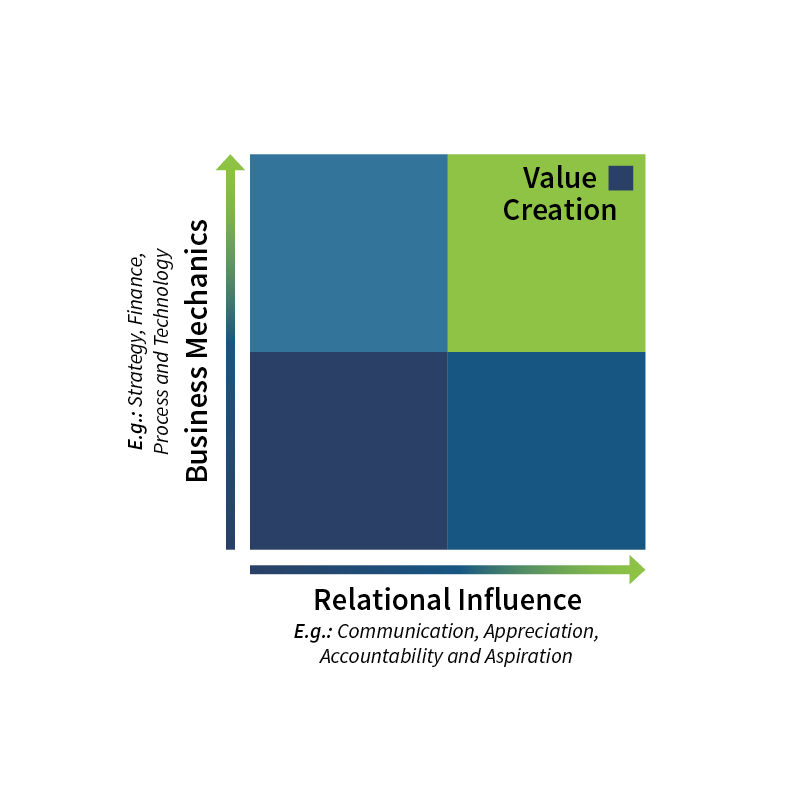
The 51 Percent Solution
September 6, 2018
Yellow Flags: How “Personal Fouls” Can Sabotage Success
January 23, 2019My wife’s grandfather, Papa (French pronunciation), had a significant influence on me. Papa was one of the finest human beings I have ever known and an incredibly successful businessman. For several years, when I was a young professional, I had the privilege to have lunch with  Papa once a week. As he ate his customary slice of chocolate cream pie at the InterContinental Hotel in downtown New Orleans, he would share with me lessons that he had learned in how to build a profitable and sustainable business. One of the sayings that Papa would repeat was this:
Papa once a week. As he ate his customary slice of chocolate cream pie at the InterContinental Hotel in downtown New Orleans, he would share with me lessons that he had learned in how to build a profitable and sustainable business. One of the sayings that Papa would repeat was this:
To put down everything he knew
A thousand books it took
And he still didn’t know enough
To fill a pocket book.
Now, what does this mean? I’ll give you a hint: it has to do with people.
The Two Sides of Value Creation Leadership
Papa knew a lot about leadership. He led the financial, regulatory, and legal functions of a heavy construction company—and he did it so well that the company was able to scale into a dominant market leader (a position it still enjoys).
Over his many years in leadership, Papa learned that success doesn’t come only from of a strong understanding of business mechanics (e.g. strategy, process, finance and technology). “Filling the pocket book,” as the saying goes, is largely about how you treat your people. It’s your people who actually deliver the value.
In my mind, Papa was a shining example of how to treat people. Although he was brilliant and a wiz in finance, he balanced the “smart stuff” with strong relational influence.
What do I mean by that?
He didn’t say much, but he listened deeply.
He was generous with appreciation.
He was clear about his expectations and held people accountable.
Most importantly, Papa was a man of his word—you could count on him.
The balance between his mastery of business mechanics and his keen relational influence is what led to his success.
If you look at any highly successful leader, you tend to see these two factors working together.
Take for example Jeff Weiner, the CEO of LinkedIn and one of Glassdoor’s top-ranked leaders. Since starting, he has grown the company in both scale and profitability through the balance of business mechanics and relational influence that I mentioned above; I call it Value Creation Leadership.
However, in a wonderful address he gave to the 2018 graduating class of the Wharton School of Business, he revealed that he wasn’t always so skilled.
Even Jeff Weiner had to learn how to listen
Although Weiner is obviously intelligent, he started out his career with a lot to learn about the “people” side of things. A journalist once described him as “wielding his fierce intelligence as a blunt instrument.” Weiner remembers himself as intense; “I’d listen with the intent to reply and not seek to understand,” he said to the Wharton class of 2018. “I expected others to do things the way I did and grew frustrated if they didn’t.”
Over time, Weiner realized that his approach to leadership was unproductive. Rather than inspiring people, he was shutting them down.  Somewhere along his journey he discovered the factor he was missing, something he calls “compassion.”
Somewhere along his journey he discovered the factor he was missing, something he calls “compassion.”
It radically transformed his leadership style.
The compassion Weiner is talking about is far from a touchy-feely “permissiveness” that might come to mind; it’s a demanding discipline.
The central point of this compassion is listening to the point of understanding. (This theme is central in my book Both Sides Win.) Weiner has vowed to lead with compassion for as long as he is a leader. Looking at the success of LinkedIn, this transformation did the trick.
This was probably not the message the graduating class of the Wharton School of Business was expecting. Weiner was addressing people who had just invested years—and a lot of dollars—in honing their knowledge of business mechanics. But they got a very important message. Smart is not enough. Their journey to success is paradoxical and will require them to also master the human dynamics of the performance that generates profit.
Are you inspiring, or do you just think you’re inspiring?
Countless leaders in the world have yet to make Weiner’s big leap.
For example, the VP of a company reached out to me with a strange request: “Can you fix our CEO?”
From what the VP told me and from reading the CEO’s LinkedIn profile, I knew I probably was not the man for the job.
Everything about this guy was exactly as that journalist described Jeff Weiner: “wielding his intelligence as a blunt instrument.” Not only did this man apparently think he was a genius, but he also apparently truly believed that he was an inspirational leader and great with people.
As out of touch as it sounds, this situation is not uncommon. Managers tend to have highly inaccurate views of their own management ability. A survey in The Economist, of more than 4,000 professionals, found that when managers were asked which areas of performance they wanted to improve, they said technology and finance—business mechanics. Their employees, on the other hand, overwhelmingly said they wanted better leadership and better emotional intelligence—relational influence.
Talk about a disconnect!
Technology, finance, leadership, and emotional intelligence are all essential, but many managers tend to be hyper-focused on the business mechanics and forget about the people. Value Creation Leadership is about balancing the two.
Value Creation Leadership requires a balance between strong business mechanics and strong relational influence.
Let’s take another look at that rhyme.
To put down everything he knew
A thousand books it took
And he still didn’t know enough
To fill a pocket book.
Papa’s saying underscores an important paradox in the value creation, which is, incidentally, the leading indicator of profit. The purpose of a business is to create value through our work, then sell it to customers and capture some of value as profit. The paradox is this:
Business mechanics are essential for success. But without an equal emphasis on relational influence—your ability to positively influence the people who deliver value through their work—a business cannot create value for the long-haul.
Papa learned this through his many years as a leader. Weiner learned it through compassion. As for the rest of us leaders, we need to practice.
How do you practice Value Creation Leadership?
If you want to improve your leadership ability, the best first step is to figure out where you stand. You can do this, for instance, by getting Harrison Assessment data. The results will give you a clearer picture of your strengths and any areas where you may need to develop stronger relational influence.
Next, develop the key habits that positively influence a person’s level of engagement. For instance:
- Focusing on what’s going well
- Appreciating both your peoples’ performance and the qualities you value in your people and
- Listening to your people so they feel heard.
When leaders get better, companies get better!
Are you ready to help your executives and managers maximize their leadership potential? I’m ready to start that conversation today. Let’s talk!


